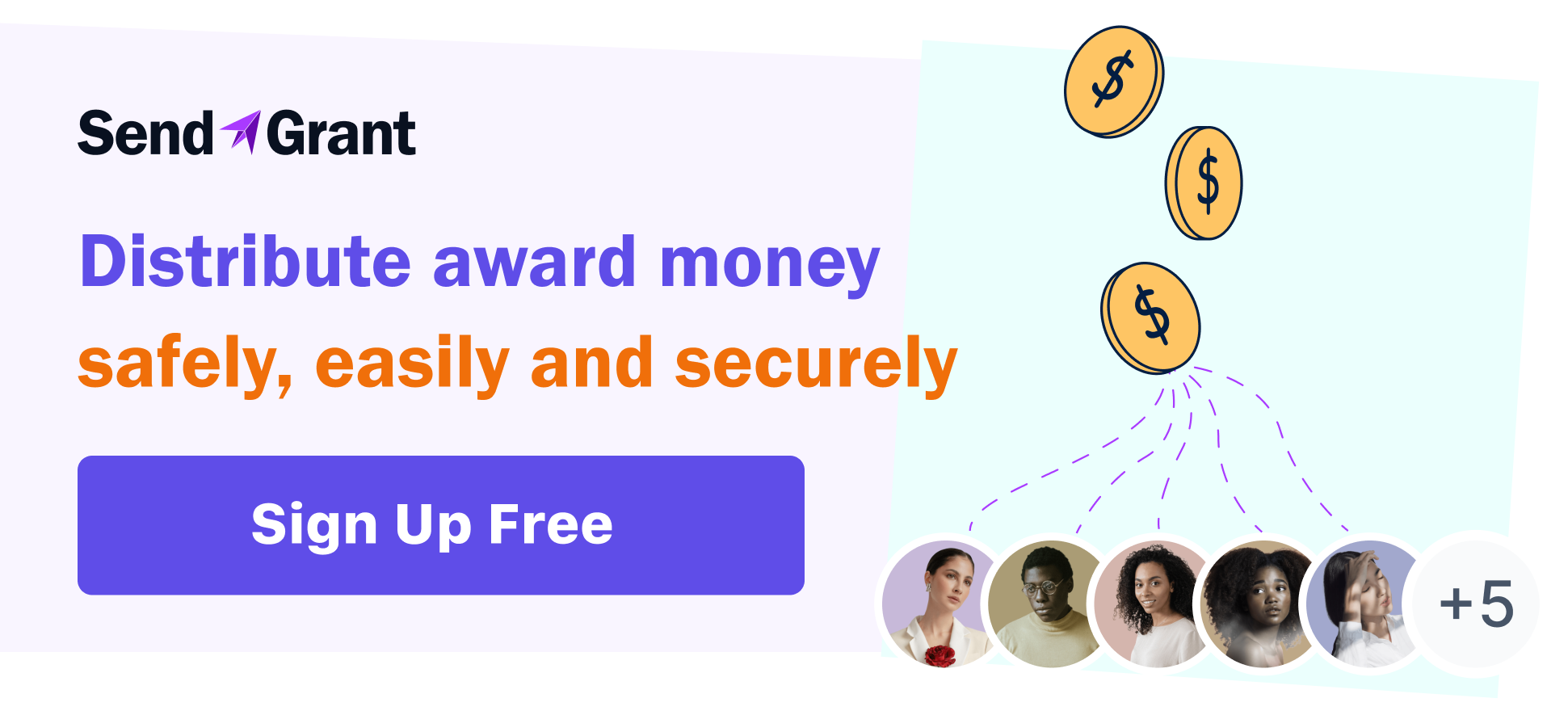Maximize Your Grant Payments with Effective Budgeting

When you need a way to fund a project - any project, grants are one of the best ways to do it. Whether you’re looking to find scientific research or develop your community, at some point you might find yourself looking to apply for a grant. The trouble is, that if you are lucky enough to receive one, managing those funds can be challenging.
But here’s the thing, if you have secured a grant from a grantor, odds are they have specific expectations and requirements for how you’ll use those funds. With that in mind, it’s a good idea to create and execute a grant budget.
This way, you can meet the expectations as a grant recipient helping you to comply with the necessary guidelines and requirements for reporting how you’re spending the cash you received.
Simply put, without effective grant budgeting, it will be much harder to ensure your projects stay on track. And, it will be harder to prove you used the funds the way you said you would as well. That’s why below we’re sharing some of the best strategies for effective grant budgeting.
Understanding Your Grant Guidelines
If you don’t understand your grant’s guidelines, there’s no guarantee you’re spending the money the way you’re supposed to. So the first step in our grant budgeting tips is to determine exactly what the requirements are if you don’t know them already.
Your best bet?
Thoroughly read the grant guidelines, and make sure you understand them before creating your budget in the first place.
If you have any doubts on what the restrictions are in regards to how the funds can be used, double check with your grantor. When it comes to using grant monies, it’s better to be safe than sorry because when you’re not using the funds appropriately you could be subject to fines and/or disqualifications.
In the worst case, misappropriation of funds could lead to penalties up to and including fully repaying your grant along with damages. This of course depends on the nature of your grant.
Create a Detailed Budget Plan
You understand the grant guidelines. Perfect!
Now it’s time to actually draft a detailed budget plan. Admittedly, it would have been a good idea to create a budget plan before applying for the grant. However, now that you actually have the money in hand, it’s important to double check your estimates.
This critical step in grant budgeting helps you to ensure that you’re allocating resources appropriately. It also helps you manage expenses effectively.
Simple actions like this are the key to keeping your project on track. The question is, what does a detailed budget plan entail?
Here are a few steps you can take.
1. Identify your project’s expenses
What are all of the expenses associated with your project?
Yours might include, but don’t have to be limited to:
- Salaries
- Equipment
- Supplies
- Travel costs
- Software fees, and more.
You may want to include a buffer in your grant budgeting plan as well. This section could include:
- Unforeseen repairs
- Potential changes to the cope of your project
- Unexpected expenses, etc…
It’s important to keep in mind that the more detailed your budget, the easier it will be to effectively manage your funds.
2. Estimate your costs
Identifying your potential expenses is one thing, now you need to estimate what those costs will be as accurately as possible.
For example, rather than guessing how much your equipment or supplies will cost, you’ll take the steps to research market prices to give you a more clear picture of how much you will be spending.
You may find you were overestimating your expenses. Then again, what happens more often than not is you realize you were in fact underestimating them.
3. Create a timeline for when you will need to pay for your expenses
Grant budgeting requires more than figuring out your costs. You also need to know when the bills will come due for the various line items on your budget.
There are a few reasons you should create a timeline:
- You can create milestones for your project that allow you to allocate your resources effectively
- You can identify potential delays and/or issues early on and make adjustments
- You’ll be able to see whether or not you need additional funding to complete your project in full
4. Document everything thoroughly
It is critical that you keep detailed records of everything.
This includes receipts and invoices of all of your expenses.
You may want to regularly review these records against your budget plan as well.
This does two things for you:
- Documents the proof you’re adhering to grant guidelines
- Let you know early on if you’re going to run out of funding.
Control Your Costs Wherever Possible
This is one of those grant budgeting tips that is easier said than done. Controlling costs is not always easy, but it’s why we mentioned you should review your records regularly.
Overspending is easy to do - with or without a budget.
If you want to achieve your project goals however, it’s important to run a tight ship so to speak.
Make sure everyone on your project team understands that going over budget is not an option.
While you could technically ask for more money from donors, or apply for another grant, it’s better to come in under budget or right at budget if at all possible.
What should you do if you doubt you can complete your project?
Prioritize your expenses, and look for opportunities to save money. The more of your project you can complete, the easier it will be to find sympathetic donors for your cause.
Look for ways to have small or quick wins. It’s just like in for profit businesses - your stakeholders will be looking for proof that your cause is worth the funding.
If you can establish that your project is actually helping the public or your target group, you will have more success getting additional funding.
Pro Tip: Don’t assume you will be able to secure additional funding though!
This is why researching ahead of applying for grants is so important. It’s better to know how much you need and look for the money once than to keep making the rounds asking for more.
That said, it’s also a good idea to communicate with your stakeholders regularly. As the project gets going, keeping them informed about the progress can go a long way.
Providing proof that you’re managing grant funds appropriately can be the difference between happy donors willing to give you more money, and ones that will write you off. The last thing you want is a tarnished reputation!
Consider Negotiating for In-Kind Contributions
What do in-kind contributions look like?
- Non-cash resources
- Volunteer time
- Donated/Borrowed Equipment
These can be used to support your project without impacting your grant budgeting plan.
Just don’t forget to document any and all contributions received. Include the fair market value of what it would have cost as well so you can keep donors and grantors in the loop.
In-kind contributions can be hugely beneficial in keeping your project on or under budget because they stretch your funds further and maximize impact.
Review Your Grant Budget Regularly
We’ve mentioned this a few times now, but it bears repeating. Reviewing your grant budget helps keep you and your team accountable. How can you put this into practice?
- Schedule grant budget reviews - these can be weekly, monthly, quarterly, or annually. The more complex your project and/or the longer your grant period, the more frequently your reviews may be.
- Compare expenses to the estimates - any discrepancies should be noted and investigated as quickly as possible. You may find you’re overpaying for something or that there are additional in-kind contributions you need to seek out
- Adjust your grant budgeting plan as needed - in the event you determine you can’t stay on track (i.e. complete your project), it’s better to know sooner rather than later. Which brings us to the next strategy for grant budgeting…
Collaborate with Your Grantor
Your grantor has likely been in the business of giving grants longer than you have been seeking them out. They might be able to offer grant budgeting tips as insights you are not currently aware of.
They may also be able to give you guidance on securing more in-kind contributions, or give you access to their network to help you keep your project on track.
Establish a relationship with your grantor early on and share your budget plan with them. Though you have to submit reports as part of your grant recipient requirements, welcoming them into the fold and establishing clear lines of communication could improve your odds of achieving your goals.
Ask for their advice, discuss any changes that come up, and where necessary ask for approval before adjusting your plans. Just by providing regular updates, you’re showing your grantor that you care about their rules, and that you believe in effective collaboration for the highest good of everyone involved.
Maintaining open communication can help you build trust, and get that much closer to completing your grant project.
The Best Tool for Grant Payments is SendGrant
Effective grant budgeting is critical for maximizing your grant payments and ensuring that your project stays on track. By understanding your grant guidelines, creating a detailed budget plan, using a grant payment software, considering in-kind contributions, reviewing your budget regularly, and collaborating with your grantor, you can effectively manage your grant funds and achieve your project goals.
Remember that effective grant budgeting is an ongoing process and requires regular attention and adjustment. With these tips in mind, you can successfully manage your grant funds and make a meaningful impact in your field grantmaking with the help of a good grant payment software. We highly recommend that you try SendGrant for this purpose. SendGrant takes the headache out of grant budgeting and makes reporting a breeze. Click here to join the pre-launch and find out what our software can do for your next project!
About the author
Founder and President of SmarterSelect. Responsible for company, product, and marketing strategies and execution.
WebsiteRead more posts by this author.
